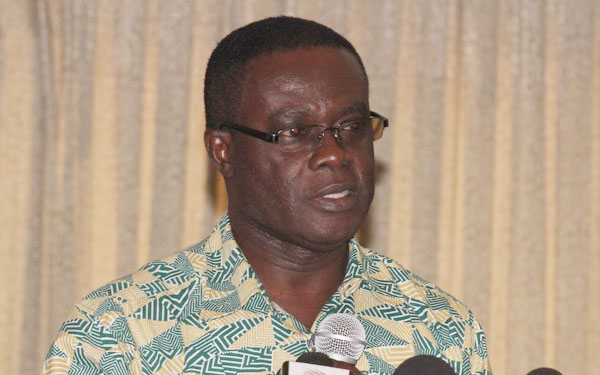Baah Wadieh
Acting Government Statistician, Baah Wadieh, has challenged actors in the health sector to prioritise maternal healthcare in order to achieve its health targets.
Delivering a report on the 2017 Ghana Maternal Health Survey in Accra, Mr. Wadieh explained that the country’s maternal mortality ratio stood at 310 deaths per 100,000 live births during the seven-year period prior to the survey.
This implies that one in every seven deaths among women age 19 to 49 is due to maternal causes.
The figure woefully falls short of the Ministry of Health’s Operational Plan which aims to reduce the maternal mortality ratio to 203 deaths per 100,000 live births by 2030.
“Many of these deaths are preventable and we need to take decisive action in this regard,” he revealed.
The survey also showed some remarkable improvement in maternal health indicators since the conduct of the first Maternal Health Survey in 2007.
According to the 2017 GMHS, mothers in Ghana are healthier now than ever before and are seeking and obtaining the healthcare they need.
Again, more women are attending four or more antenatal care (ANC) visits and beginning ANC within their trimester.
Nationwide, delivery in health facilities has increased over the past 10 years from 54 per cent in 2007 to79 per cent in 2017.
Fewer children are also now dying before their fifth birthday compared to the situation 30 years ago.
Results
The survey showed a decline in child deaths. In 2017, the country recorded under-five mortality of 52 deaths per 1,000 live births, a decline from 155 deaths per 1,000 live births in 1988.
Nevertheless, it called for increased efforts to address child deaths as one in every 19 Ghanaian children is till dying before their fifth birthday.
Antenatal care (ANC) and delivery care coverage in Ghana are improving, according to the survey.
“Nationwide, delivery in health facilities has increased over the past 10 years, from 54 per cent in 2007 to 79 per cent in 2017. While this is very good news, 20 per cent of births are still delivered at home, putting mothers and babies at risk,” it stated.
On the issue of family planning, the survey revealed that one in four married women in Ghana is using a modern method family planning, representing a five-fold increase from five per cent increase in 1988.
Survey
The 2017 Ghana Maternal Health Survey (GMHS) is the second in Ghana along with six Demographic and Health Surveys implemented between 1988 and 2017.
The survey was implemented by the Ghana Statistical Service and the Ghana Health Service from June15 through October 12, 2017 and it funding was provided by the government of Ghana.
The data for the survey were collected nationwide, with samples of 26,324 households, more than 25,000 women ages 15-49 were interviewed.
It provides the government and international partners with data for programme managers and policymakers to make evidence-based decisions to improve the maternal and child health situation in Ghana.
Mr. Wadieh, however, added that the results are just the first part of the process of improving maternal health in Ghana.
He said, “We need to make sure that the survey findings are utilised for decision-making by health professionals at the national regional district and community levels as well as by researchers, policymakers and politicians.”
By Marcellina Enyonam Fleku & Jamila Akweley Okertchiri


